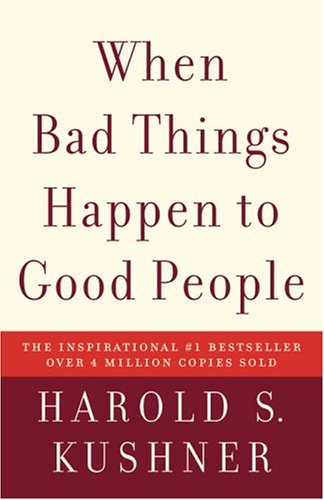The problem of evil is probably the most vexing philosophical question for monotheism. It has affected people I know personally all the way up to famous scholars like Bart Ehrman. What are we to do with this problem? Even though the question has been explored endlessly, I want to think about it a little today.
First, according to contemporary philosophers, the logical problem of evil is more or less solved. The logical problem of evil is a subset of the problem of evil that argues that God’s existence is logically incoherent with the existence of evil. And yet many people remain unsatisfied with the logical resolution of this problem. Why?
Some people argue because the evidential problem of evil remains. The evidential problem of evil involves arguing that the existence of evil makes God’s existence unlikely, rather than illogical. That seems like a decent argument to make, and harder to refute decisively, but I don’t think God’s existence simply being made less likely or unlikely would have the same destructive effect on faith that the problem of evil has.
I want to try a different avenue. I think the problem of evil persists because it so deeply offends our moral sense. To explain, I will turn to a different story.
In Greek philosophy, much thought turns over the Homeric gods. The Homeric gods are the gods we traditionally associate with Greece–Zeus, Athena, Ares, Hermes, Apollo, and the like. The Greek philosophers by and large reject the Homeric gods. But why they reject the Homeric gods is illustrative. They don’t reject the Homeric gods on an empirical basis, such as the fact that you can physically walk over to Mount Olympus and check if the gods are actually there. Nor do they reject them on a logical or probabilistic basis. Rather, they reject the Homeric gods on a moral basis. Surely the gods do not act in ways unworthy even of human beings. Xenohpanes, a pre-Socratic philosopher, writes:
Homer and Hesiod have attributed to the gods all those things which in men are a matter for reproach and censure: stealing, adultery, and mutual deception.
Plato expresses similar thoughts:
Plato’s second objection, however, is more fundamental…Homer and the poets teach falsely about the gods and morals. Gods who fight one another, lie and cheat, and who speak and act falsely, are not suitable for the raising and teaching of children.
The Greek philosophers then puzzle out what or who exists if the Homeric gods do not. Some of their thoughts will sound very familiar to modern monotheists (especially Xenophanes’ writings). What I want to note, though, is the direction of their thought. If something about the gods and the world seem contradictory, the Greeks posit the gods (or more generally and non-theistically the moral foundation of the world) must be better than the popular understanding, not non-existent. I think this distinction is very important.
Why? Because, remember, our objection was originally moral in nature. If our objection is moral, and our conclusion then is that the supernatural does not exist, we face the much bigger problem of accounting for the origin of the moral sense that invalidated the supernatural in the first place.
Here’s where my story ties back to the problem of evil. I believe that the problem of evil persists because it fundamentally offends our moral sense. But if the origin of the problem of evil is our moral sense, we make a deadly error in rejecting the supernatural and embracing naturalism as the solution. C.S. Lewis explains this idea in full in Mere Christianity:
My argument against God was that the universe seemed so cruel and unjust. But how had I got this idea of just and unjust? A man does not call a line crooked unless he has some idea of a straight line. What was I comparing this universe with when I called it unjust? If the whole show was bad and senseless from A to Z, so to speak, why did I, who was supposed to be part of the show, find myself in such violent reaction against it? A man feels wet when he falls into water, because man is not a water animal: a fish would not feel wet. Of course I could have given up my idea of justice by saying it was nothing but a private idea of my own. But if I did that, then my argument against God collapsed too—for the argument depended on saying that the world was really unjust, not simply that it did not happen to please my fancies. Thus in the very act of trying to prove that God did not exist—in other words, that the whole of reality was senseless—I found I was forced to assume that one part of reality—namely my idea of justice—was full of sense. Consequently atheism turns out to be too simple. If the whole universe has no meaning, we should never have found out that it has no meaning: just as, if there were no light in the universe and therefore no creatures with eyes, we should never know it was dark. Dark would be a word without meaning.
Naturally I’m biased as a Christian, but I find this resolution fitting. The answer to our problems are implicit in the very objections we raise.












 r underground and away from law enforcement. To some extent, these problems can be avoided by more intelligent lawmaking (like
r underground and away from law enforcement. To some extent, these problems can be avoided by more intelligent lawmaking (like  e the ancient view that virtue and social cohesion are one and the same. Moral virtue produces harmony both in the individual person and society at large. Immorality produces disharmony in both the soul and society. But, as mentioned earlier, I recognize the need for pragmatism in this matter. The attempted enforcement of virtue can and often does produce the opposite effect or simply no effect at all. So we get neither virtue nor social cohesion and we waste state resources to boot.
e the ancient view that virtue and social cohesion are one and the same. Moral virtue produces harmony both in the individual person and society at large. Immorality produces disharmony in both the soul and society. But, as mentioned earlier, I recognize the need for pragmatism in this matter. The attempted enforcement of virtue can and often does produce the opposite effect or simply no effect at all. So we get neither virtue nor social cohesion and we waste state resources to boot.